Olsok or St. Olaf's Day
Olsok or St. Olaf's Day is held on July 29. King Olaf II Haraldsson of Norway is remembered as Rex perpetuus Norvegiae, the Eternal King of Norway. Olsok is a national day of celebration in the Nordic countries of Norway and the Faroe Islands, and also in the provinces of Härjedalen in Sweden and Savonlinna in Finland. This event in the third decade of the month July is annual.  Help us
Help us
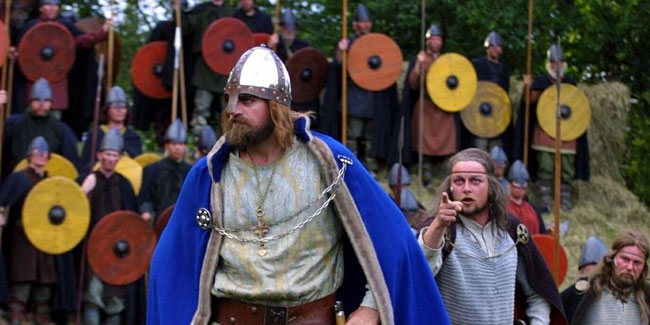
Ólavsøka is held on 29 July and it is the National Day of the Faroe Islands. Ólavsøka’s literal meaning is "Saint Olaf's Wake" (vigilia sancti Olavi in Latin). Ólavsøka is a celebration of the Norwegian king Olaf Haraldsson II (Ólavur Halgi in Faroese), who died in the battle at Stiklestad Norway in 1030. After his death, King Olaf was canonised and became the patron saint of Norway. His death is thought to have contributed to the subsequent Christianisation of Norway, and thus also the Faroe Islands. In the Middle Ages the Faroe Islands were part of the Kingdom of Norway and the tradition of Olsok (as it is called in Norwegian) has lasted on the Faroe Islands, and is today recognised as the National Day and Festival of Faroe Islands.
The festival features many cultural highlights such as traditional Faroese chain dancing and ballad singing, concerts and art exhibitions. The chain dance is for everyone; normally it is held in Sjónleikarhúsið, which is a theatre in Tórshavn. Restaurants are open late, giving you a chance to try both traditional Faroese dishes and foreign food. The National sport of the Faroe Islands is sea rowing and the national rowing competition finals are held on Ólavsøka, becoming one of the highlights in Faroese sports.
Similar holidays and events, festivals and interesting facts
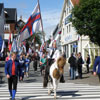 Ólavsøka Eve on July 28 (Faroe Islands);
Ólavsøka Eve on July 28 (Faroe Islands);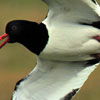 Grækarismessa in the Faroe Islands on March 12 (celebrated since 1943);
Grækarismessa in the Faroe Islands on March 12 (celebrated since 1943);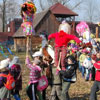 Truant's Day on March 21 (Poland, Faroe Islands);
Truant's Day on March 21 (Poland, Faroe Islands); Mother’s Day on May 10 (Anguilla, Antigua and Barbuda, Aruba, Australia, Austria, Bahamas, Bangladesh, Barbados, Belgium, Belize, Bermuda, Bhutan, Bonaire, Botswana, Brazil, Brunei, Canada, Cambodia, Cayman Islands, Central African Republic, Chad, Chile, China, Colombia, Congo, Dem. Rep., Congo, Rep., Cote d'Ivoire, Croatia, Cuba, Curaçao, Cyprus, Czech Republic, Denmark, Dominica, Ecuador, Equatorial Guinea, Estonia, Ethiopia, Faroe Islands, Fiji, Finland, Germany, Gabon, Gambia, Greenland, Ghana, Greece, Grenada, Guyana, Honduras, Hong Kong, Iceland, India, Italy, Jamaica, Japan, Kenya, Latvia, Liberia, Liechtenstein, Macau, Malaysia, Malta, Myanmar, Namibia, Netherlands, New Zealand, Pakistan, Papua New Guinea, Peru, Philippines, Puerto Rico, Saint Kitts and Nevis, Saint Lucia, Saint Vincent and the Grenadines, Samoa, Singapore, Sint Maarten, Slovakia, South Africa, Sri Lanka, Suriname, Switzerland, Taiwan, Tanzania, Tonga, Trinidad and Tobago, Turkey, Uganda, Ukraine, United States, Uruguay, Vietnam, Venezuela, Zambia, Zimbabwe);
Mother’s Day on May 10 (Anguilla, Antigua and Barbuda, Aruba, Australia, Austria, Bahamas, Bangladesh, Barbados, Belgium, Belize, Bermuda, Bhutan, Bonaire, Botswana, Brazil, Brunei, Canada, Cambodia, Cayman Islands, Central African Republic, Chad, Chile, China, Colombia, Congo, Dem. Rep., Congo, Rep., Cote d'Ivoire, Croatia, Cuba, Curaçao, Cyprus, Czech Republic, Denmark, Dominica, Ecuador, Equatorial Guinea, Estonia, Ethiopia, Faroe Islands, Fiji, Finland, Germany, Gabon, Gambia, Greenland, Ghana, Greece, Grenada, Guyana, Honduras, Hong Kong, Iceland, India, Italy, Jamaica, Japan, Kenya, Latvia, Liberia, Liechtenstein, Macau, Malaysia, Malta, Myanmar, Namibia, Netherlands, New Zealand, Pakistan, Papua New Guinea, Peru, Philippines, Puerto Rico, Saint Kitts and Nevis, Saint Lucia, Saint Vincent and the Grenadines, Samoa, Singapore, Sint Maarten, Slovakia, South Africa, Sri Lanka, Suriname, Switzerland, Taiwan, Tanzania, Tonga, Trinidad and Tobago, Turkey, Uganda, Ukraine, United States, Uruguay, Vietnam, Venezuela, Zambia, Zimbabwe); Unikeonpäivä in Finland on July 27 (Sleeping Day);
Unikeonpäivä in Finland on July 27 (Sleeping Day);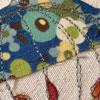 International Embroidery Day or World Embroidery Day on July 30 (founded by the Swedish 'Broderiakademin, BRAK' in 2011)
International Embroidery Day or World Embroidery Day on July 30 (founded by the Swedish 'Broderiakademin, BRAK' in 2011)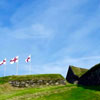 Flag Day in the Faroe Islands on April 25
Flag Day in the Faroe Islands on April 25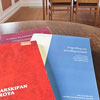 Constitution Day on the Faroe Island on June 5
Constitution Day on the Faroe Island on June 5